
View the full CURE Educated Patient Breast Cancer Summit Multi-Disciplinary Approaches to Early-Stage Breast Cancer Session on demand.

View the full CURE Educated Patient Breast Cancer Summit Multi-Disciplinary Approaches to Early-Stage Breast Cancer Session on demand.

View the full CURE Educated Patient Kidney Cancer Summit on demand.
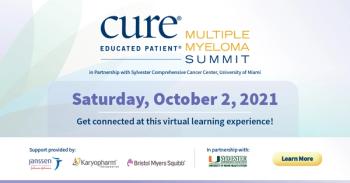
View the full CURE® Educated Patient® Multiple Myeloma Summit in Partnership with Sylvester Comprehensive Cancer Center, University of Miami on demand.

View the full CURE Educated Patient MPN Summit on demand.

View the full CURE Educated Patient Lung Cancer Summit on demand.

View the full CURE Educated Patient Lung Cancer Summit on demand.

View the full CURE Educated Patient Lung Cancer Summit on demand.
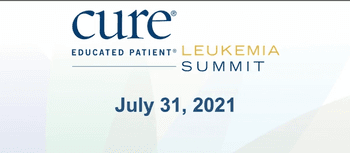
View the full CURE Educated Patient Leukemia Summit on demand.

View the full CURE Educated Patient Skin Cancer Summit on demand.

The long-term follow-up data, according to one of the study’s authors from the Sarah Cannon Cancer Institute, demonstrate “a new benchmark for the standard of care” in the treatment of patients with unresectable stage 3 non-small cell lung cancer.

Treatment with aumolertinib was associated with prolonged survival in patients with advanced non-small cell lung cancer.
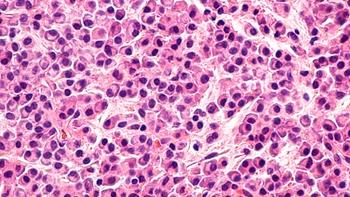
After long-term follow-up, the CAR-T cell therapy still boosted survival outcomes in patients with relapsed/refractory multiple myeloma, regardless of the number of prior lines of therapy received.

Previously treated patients with non-small cell lung cancer tended to have better responses with Retevmo than they did with prior treatments.
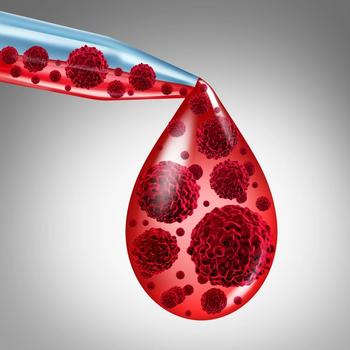
Treatment with a novel combination therapy was associated with increased efficacy among patients with aggressive relapsed or refractory B-cell non-Hodgkin lymphoma and was also well tolerated.

Adding Opdivo to treatment with Yervoy or chemotherapy improved survival, compared with chemotherapy alone in patients with unresectable and advanced esophageal cancer.

The addition of a novel drug to the chemotherapies gemcitabine and cisplatin significantly improved a survival outcome in patients with a rare form of head and neck cancer, compared with chemotherapy alone.
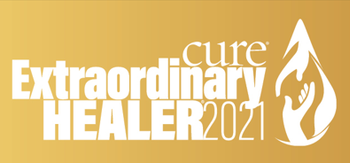
View the entire 2021 Extraordinary Healer® Award for Oncology Nursing virtual presentation here!

An expert discusses the potential that several novel therapies hold in treating metastatic breast cancer, including PARP inhibitors, immunotherapy and antibody drug conjugates. Each therapy type has an FDA-approved option to potentially provide patients with better outcomes and quality of life.

In the field of lung cancer, a number of current studies evaluating the efficacy of adoptive cellular therapies may one day offer patients with non-small cell lung cancer a “high risk, high reward” treatment option, according to Dr. Ben Creelan of the Moffitt Cancer Center.

View the full CURE Educated Patient Multiple Myeloma Summit on demand.

As the population ages, the incidence of older adults being diagnosed with lung cancer is increasing, though data on how to specifically treat this population are lacking.

Targeted therapies that attack cancer in a more precise way than traditional chemotherapy are being used more often in the field of breast cancer, but the solution in utilizing them lies within the patient-oncologist relationship, according to an expert from the Massachusetts General Hospital Cancer Center.

An expert discusses ways that small cell lung cancer is diagnosed, how to treat it and how to pivot if the disease spreads or recurs. He also focuses on efforts in the clinical trial space to potentially treat patients more effectively.

Mindfulness practices have been associated with improved mental health outcomes in patients with cancer. Here, an expert shares tips on how patients can strengthen their “mindfulness muscle.”

With more than 4 million breast cancer survivors in the U.S., survivorship care and understanding what happens to patients after surviving is of the utmost importance. An expert explains some side effects survivors may experience and treatments to help.

View the full CURE Educated Patient Breast Cancer Summit on demand.

View the full CURE Educated Patient Lung Cancer Summit on demand.

A cancer diagnosis often comes with concerns of what’s next for patients. One concern is how they’re going to afford their treatments. Here, a panel of experts discuss what options are available.

There are two myths that patients with cancer believe when it comes to being health advocates. Here, a panel of experts look to dispel those myths to help patients become better advocates.
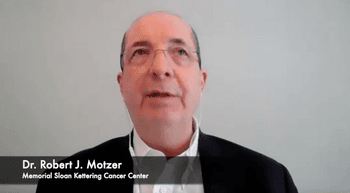
Positive results from the phase 3 CLEAR clinical trial, presented at the 2021 ASCO Genitourinary Cancers Symposium, are just one more dataset that could offer “a sense of hope and promise” for patients with advanced renal cell carcinoma (RCC), says the study’s lead author, Dr. Robert J. Motzer.